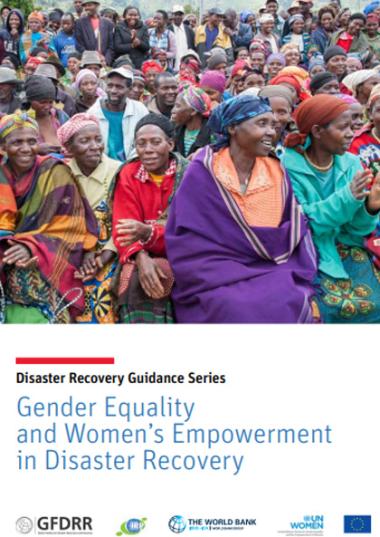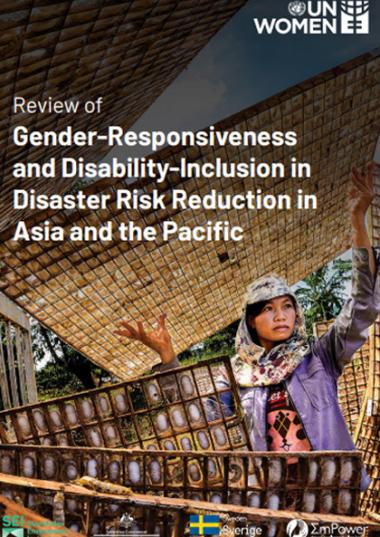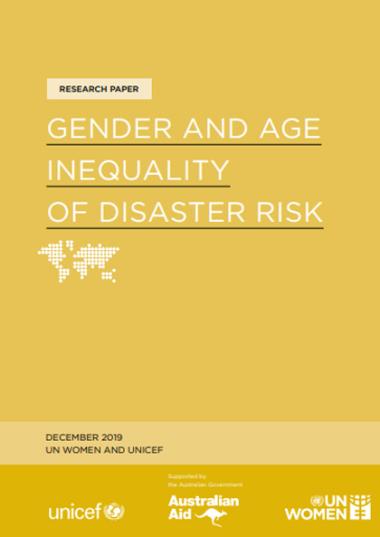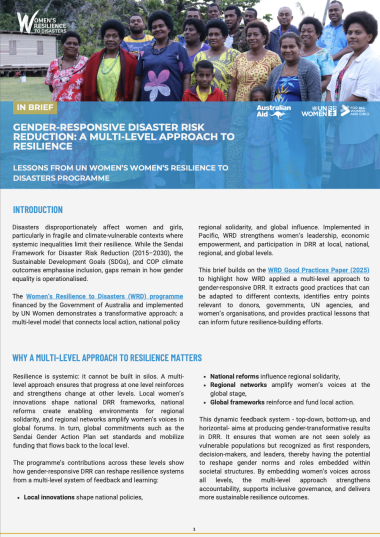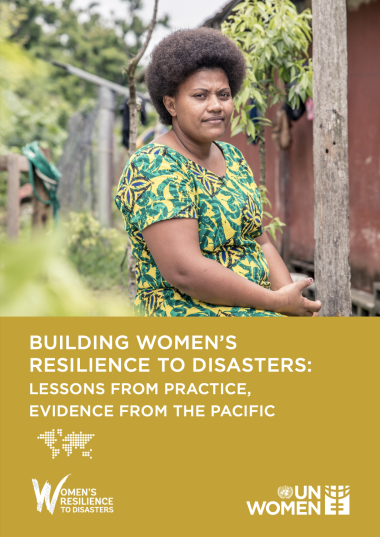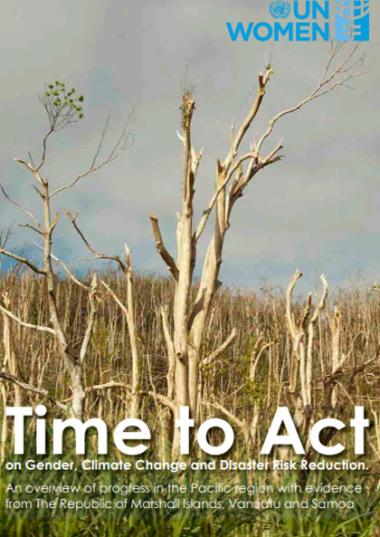
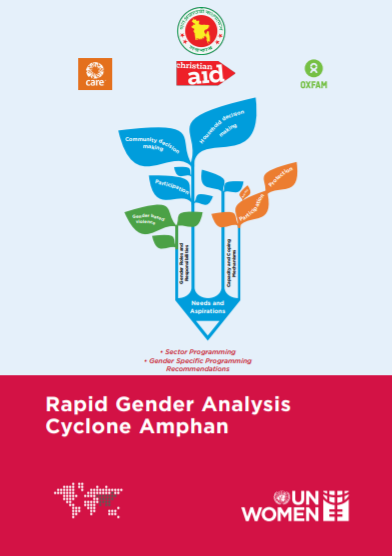
On May 20, Super Cyclone Amphan made landfall in Bangladesh impacting 2.6 million people in 19 districts. A Rapid Gender Analysis (RGA) on the impacts of Cyclone Amphan has been conducted through contributions from the following Gender in Humanitarian Action Working Group (GiHA) member agencies: UN Women, CARE, Oxfam and Christian Aid.
In the hardest hit districts, it is estimated that nearly 820,000 women – including over 49,316 pregnant women and 29,133 female-headed households – were affected by Cyclone Amphan. The Rapid Gender Analysis confirmed that certain groups were hit particularly hard, including female-headed households, pregnant and lactating women, people with disabilities, sex workers, transgender persons, adolescent boys and girls. In the aftermath, women and girls are at greater risk of gender-based violence such as domestic violence and early marriage in a context of existing gender inequality and discrimination.
The report outlines key findings and concludes with immediate and medium to longer term recommendations for humanitarian response. The gendered impact of Amphan is evident in following areas:
• Food was identified as most prioritized immediate need, due to the food insecurity induced by COVID-19 lockdown that has obstructed the livelihoods of millions and pushed many poor households below the poverty line;
• The negative coping mechanisms adopted in the aftermath of Cyclone Amphan such as reduced meals, selling productive assets, taking loans has taken a more drastic impact on women and girls;
• Safety measures for women and girls in the shelters and for the displaced community remains a concern and existing shelters are not gender, age and diversity friendly;
• Protection and safety issues such as domestic and intimate partner violence and child exploitation will likely increase and become compounded by factors such as loss of habitat, loss of income, school closures, etc.
